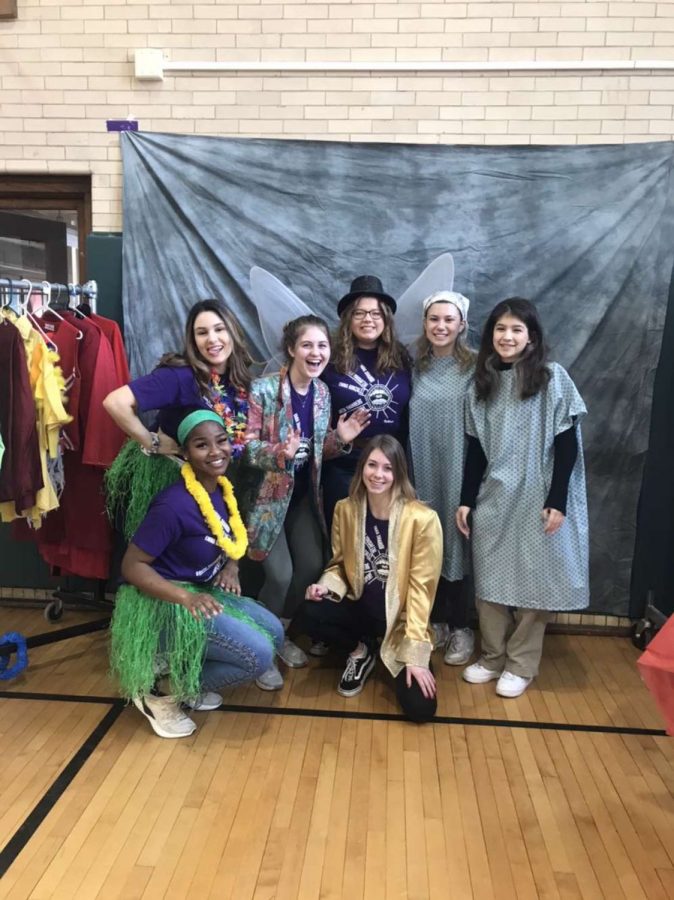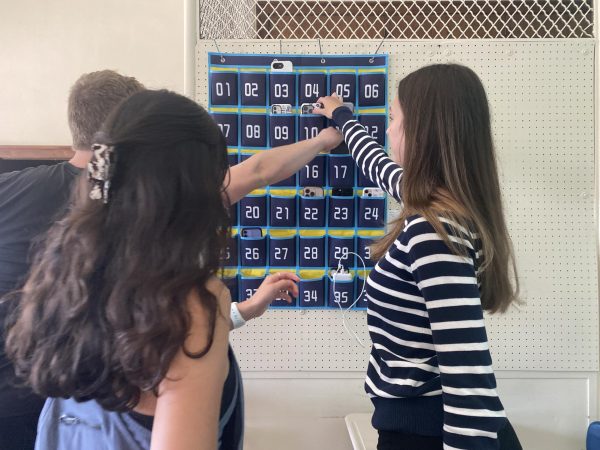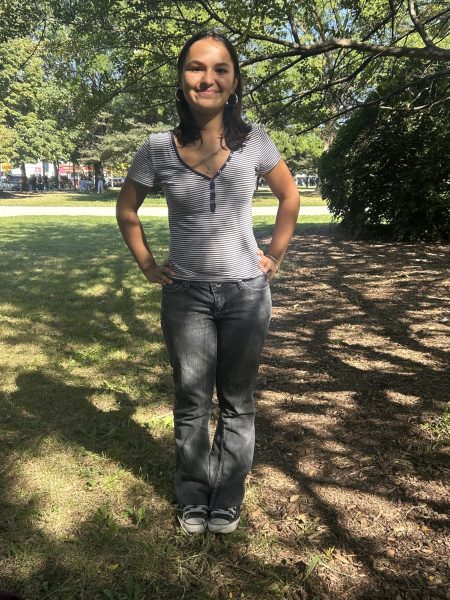Human rights classes: Should they be required in schools?
Women in Lit students posing in one of the photo booths at the 2020 Women in Lit Fest. (Photo courtesy of Greta Pearl)
Mental health, religion, race, gender and sexuality are just a few of the topics that have often been considered taboo topics to be tiptoed around in the classroom. Not all students are comfortable discussing these topics in the traditional history or English class setting, afraid of being attacked for their opinions.
Recently, CPS has made strides towards touching on some of these controversial issues. In October 2019, CPS made the change to recognize Columbus Day as Indigenous People’s Day on the CPS online calendar. On Aug. 19, 2019, Gov. J.B. Pritzker signed the Inclusive Curriculum Law, mandating that public schools have to teach students about contributions in history made by LGBTQ+ people.
CPS has begun to make educational changes towards a more socially progressive education system. However, some people believe not enough is being done to create awareness for social justice issues in schools.
Some possibilities to create a more diverse learning environment include adjusting the curriculum taught in public schools, while another option could be implementing new courses designated specifically for human rights issues.
Manny Maya, Div. 183, was a previous student in Mr. Fine’s Literary Activism class, a course designed to teach students about social justice issues through class discussions and through reading works made by human rights activists.
Although Maya believes that students should have to take human rights classes, he thinks that the first step to introducing human rights classes would be to change the current curriculum taught in history classes.
“I think idealistically, the American school system should strive to implement, to some extent, a developed course which covers these types of [human rights] topics and where the U.S. government has failed us,” Maya said.
“But it should be like a modification of our history classes which are a predominantly white man telling a story,” Maya continued.
Maya also said there are possible challenges associated with requiring students to take human rights classes.
“If you are forcing someone who is just simply ignorant and is not willing to adapt to this open-mindedness of simply just listening to the other party, not even the other party another person, I think that’s when we start dipping into the hostile environment,” Maya said.
Max Silverman, Div. 181, who is currently enrolled in Lane’s Literary Activism class, also said that students should have to take a class specifically for human rights, whether it be one of the human rights-centered electives offered at Lane or an entirely new class.
“I think it’s a really great way to establish a safe space where my peers and I can come together and discuss ‘controversial’ issues,” Silverman said.
Although Silverman believes that his experience in literary activism is productive, he notes that “for the most part it’s kind of everyone just agreeing with each other because it’s a lot of like-minded people.”
Silverman said that human rights classes would be more productive if they were required, and the proper boundaries were put into place to avoid escalating arguments between students.
“Although there may be differing opinions, or although somebody may not necessarily be expressing their disagreement, they’re still sitting there listening to an opposite opinion, and it’s getting their wheels turning,” Silverman said.
While reconstructing the current education curriculum may be more of a long term goal, Lane students have the opportunity to take advantage of enrolling in human rights classes: Women in Literature, Black Revolutionary Literature, Literary Activism, South Asian Literature, and Latin American Literature.
Sylvia Ebeid, Div. 172, who is currently enrolled in Women in Literature, said that students at Lane should be encouraged to take human rights classes.
“I don’t know who I am to tell people what they should and should not take, but I definitely think it [human rights classes] should be advertised more,” Ebeid said.
Ebeid said that if human rights classes were required by schools it could benefit a lot of students.
“That could really help a lot of people just maybe even be open to discussions,” Ebeid said. “That’s the main thing — as long as this classroom feels like a safe space, you can really learn a lot, so I think people could really benefit from it.”
Your donations directly fund the Lane Tech student journalism program—covering essential costs like website hosting and technology not supported by our school or district. Your generosity empowers our student reporters to investigate, write, and publish impactful stories that matter to our school community.
This website is more than a publishing platform—it's an archive, a research tool, and a source of truth. Every dollar helps us preserve and grow this resource so future students can learn from and build on the work being done today.
Thank you for supporting the next generation of journalists at Lane Tech College Prep!




